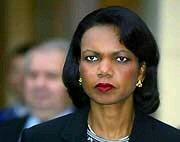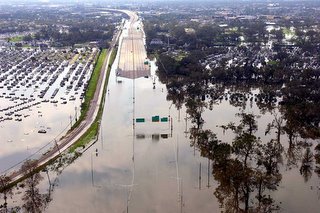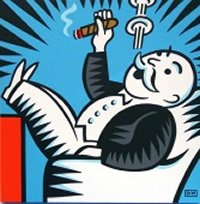
Memo to Clark Hoyt based on
this – keep working on your John Edwards coverage; you still don’t have it right.
I’m not sure why it is of any importance whatsoever to Kate Zernike of the New York Times that Democratic presidential nominee John Kerry told audiences at campaign stops in 2004 that “help is on the way,” when John Edwards, campaigning as the vice-presidential nominee said “hope is on the way” because Edwards wasn’t comfortable with “help.”
Thus begins
yet another thinly sourced piece of hit “journalism” aimed at Edwards in the Times today (and on the front page, no less), portraying him as a cagey opportunist who used his chance on the ticket with Kerry to promote his own eventual presidential bid, questioning his allegiance to Kerry in the process.
I would save my disgust only for the Times and Zernike (admitting that covering the ’04 campaign is fair game without the innuendo from a newspaper that, at this point, would probably be doing Edwards a service if it ignored him altogether) if it weren’t for remarks from Kerry campaign people such as former communications director Stephanie Cutter, quoted in the article as saying “A lot of what I’m seeing now (from Edwards), I wish I’d seen in 2004,” showing displeasure because Edwards wasn’t some sort of an attack dog on the campaign trail.
I have a great deal of respect for John Kerry, but the reality is that he ran an inept campaign that only occasionally stayed on track to the point where he could seriously challenge Dubya. His people, for the most part, didn’t understand what the election was all about, which was security first and foremost, with many people in this country still in lizard-brain-letting-fear-decide-everything mode that was gleefully exploited by President George W. Milhous Bush and Karl Rove.
Kerry’s people were woefully slow in responding to the Swift Boat Liars, he never came up with a clear message on how he would keep this country safe, and, when Dubya played his little “gotcha” number and asked Kerry if he’d still invade Iraq without WMD, Kerry inexplicably said yes (and Kerry also never was able to come up with a rejoinder to the relentless “he voted for the war before he voted against it” charge – come to think of it, I really can’t remember a point in which Kerry made the case that the presidency was anything other than something for the top of his resume, though I believe he would have done a good job).
Actually, given the reasons I just noted as well as the fact that the Kerry campaign showed so little imagination, it tells you something that he came as close to winning as he did; it kind of shot up the “values voters” myth as far as I’m concerned (people whose only real fealty to Dubya came from his antagonism towards gays). And I would also argue that Benny’s edict against pro-choice politicians receiving communion as well as widespread voter disenfranchisement and likely fraud by Kenneth Blackwell in Ohio had a good bit to do with the outcome also.
As far as I’m concerned, more people have disliked Dubya for longer than our corporate media is willing to admit (talking pre-Katrina here), but they went along with him to satisfy their own prejudices against Democrats, as usual. And Kerry almost pulled it off because, first and foremost, he campaigned and carried himself like an adult despite the flaws I just mentioned.
And I know I’m partial on this, but I don’t understand how Edwards is to blame here. He provided the ability to reach the voters that Kerry did not and never will have (on a national scale outside Massachusetts, that is). He supported Kerry on the campaign generally and he drew the much-tougher assignment of debating Dick Cheney as opposed to the Kerry-Dubya matchups, which clearly favored the former, though I’ll admit that debates are prisms of a sort anyway in which people see primarily what they want to see.
So yeah, New York Times, keep at it if you want to keep reporting on Edwards. You have your own work cut out for you as far as I’m concerned.
That being said, though, I should bring the following to the attention of the Edwards campaign: if I’m going to “carry your water” at this site, he shouldn’t say
this...
…and then turn around and say
this.
 I read this in the Washington Post yesterday, and I thought that it was one of the most damning commentaries on Dubya I'd read in awhile concerning the Israeli-Palestinian peace talks in Annapolis, MD next week (sometimes the inadvertent remarks are the ones that say the most)...
I read this in the Washington Post yesterday, and I thought that it was one of the most damning commentaries on Dubya I'd read in awhile concerning the Israeli-Palestinian peace talks in Annapolis, MD next week (sometimes the inadvertent remarks are the ones that say the most)...














